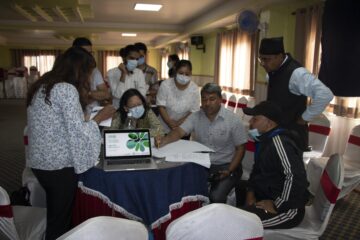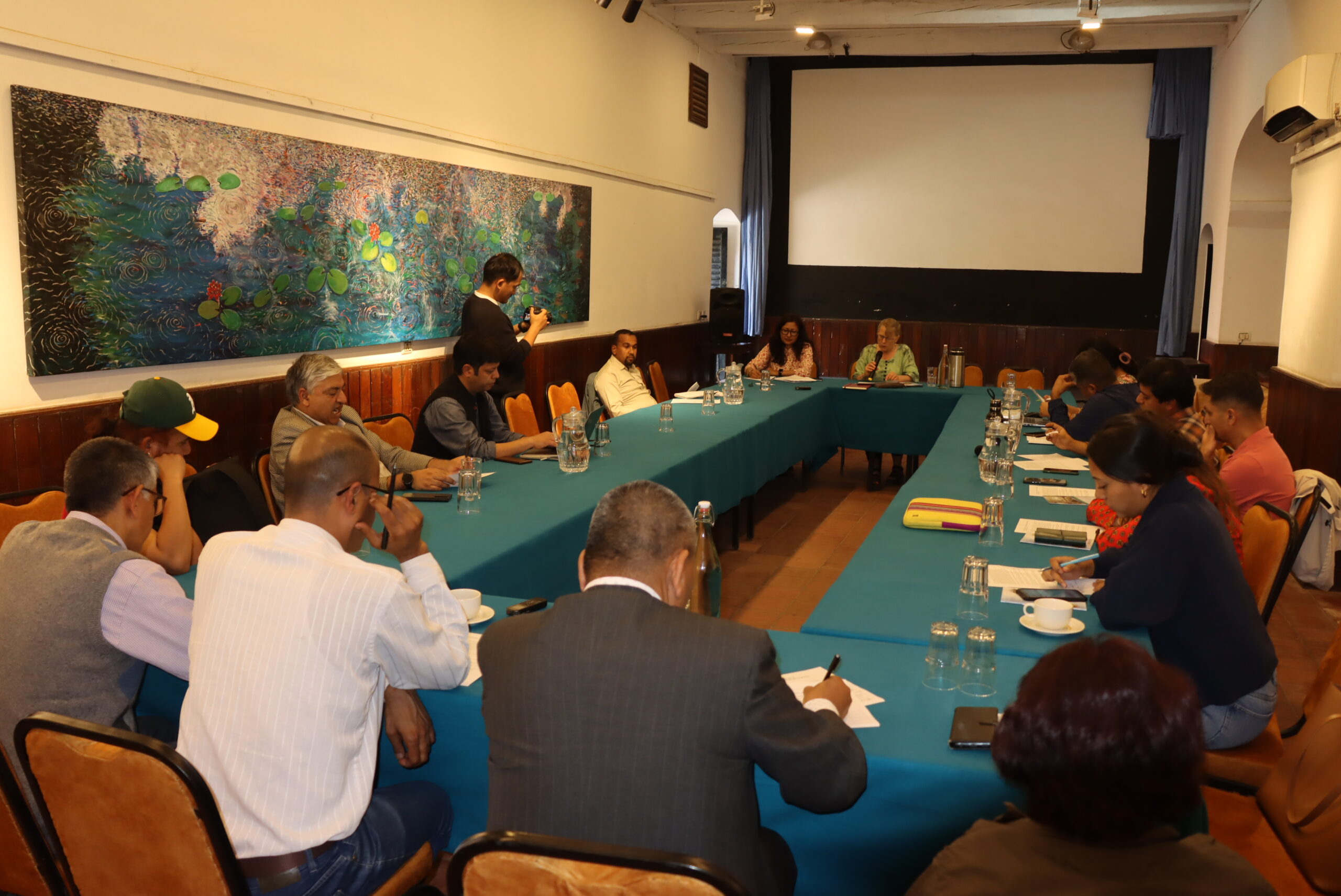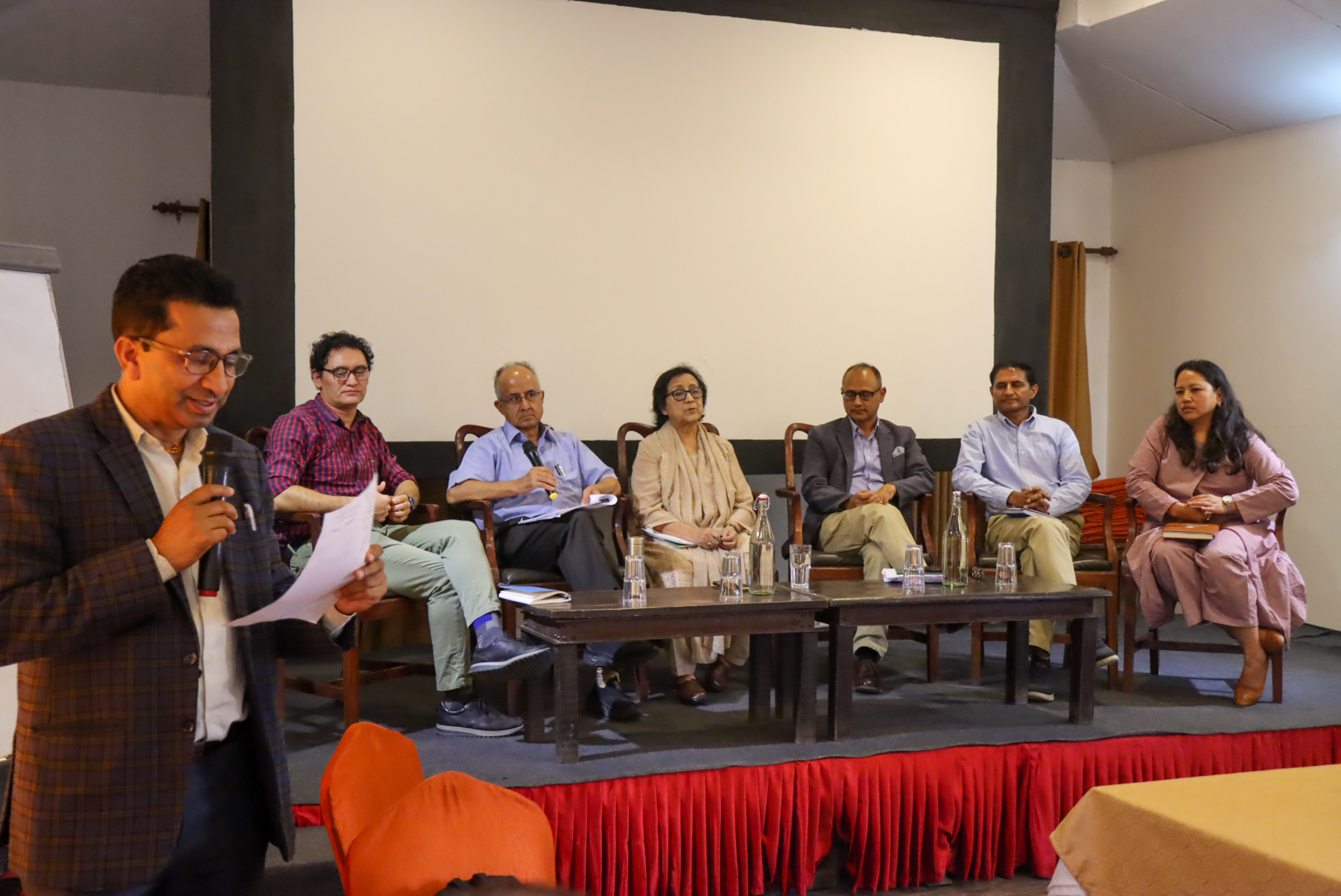
SIAS in collaboration with the University of Edinburgh (UoE), UK Research and Innovation (UKRI) and Global Challenges Research Fund (GCRF) organized a research sharing workshop on October 5, 2021 at the Kwality Banquet, Bhainsepati, Lalitpur. Bringing together both social and physical scientists working in the “Tomorrow Cities” project (https://tomorrowscities.org/), and the community of Khokana, LMC-21 (Lalitpur Metropolitan City – 21), the workshop intended to co-produce participatory hazard map (PHM) and share the research findings that have been generated in the last two years by the scientists with the Ward Disaster Management Committee (WDMC) of LMC-21.
The workshop was chaired by the ward chair of LMC-21, Mr. Rabindra Maharjan, who is also the president of the WDMC. Another ward/WDMC member, Ms. Helen Shova Maharjan welcomed all the participants and briefly explained the ongoing researches through TC in Khokana, and requested other community members to provide necessary support to the researchers, which is a prerequisite for the co-production of a risk-sensitive land use plan (RSLUP) in Khokana. She also committed to provide the necessary support required for the smooth operation of the TC project in Khokana.
After the introduction of participants by Mr. Kamal Devkota and project introduction by Dr. Mani Ram Banjade, the technical session kicked off with the presentation of Dr. Dilli P. Poudel from SIAS. He briefed about the ongoing researches and community engagement as a part of the co-production of Khokana’s RSLUP and also presented the findings from the Participatory Hazard Mapping. Likewise, the physical scientists from IOE, NSET and Practical Action also presented their findings.
In the event, the participants not only listened to researchers but also provided insightful inputs to include in the Participatory Hazard Mapping. Likewise, they suggested extending the research niche in terms of scale and themes studying everyday risks that are generated locally (both natural and social), such as, after the implementation of several development projects such as fast track, high transmission line, and they also mentioned that efforts should be made to develop Khokana “a cultural city”. Migrants’ representatives commented on the constricted beliefs of the local people about being “insiders” (i.e., a local) and “outsiders” (i.e., a migrant) and suggested local people to treat them equally not only in everyday interactions but also while providing services from the ward.
Prof. Dr. Sangeeta Singh, from IOE, besides reminiscing the historicity of TC implementation in Khokana, highlighted the diverse works of SIAS, IOE, NSET, Practical Action in order to produce RSLUP which would be instrumental to avoid predictable risks that comes along with the growing urbanization and ongoing development activities. She also informed that the research outputs will be shared with the high-level steering committee comprising several ministries, departments, national planning commission and LMC who will facilitate in implementing RSLUP at the ward level. The RSLUP produced through this study in Khokana would be a model for other wards/local level governments of the country.
The ward chair, in his concluding remarks, shared about how the team of TC made him realize that lack of a concrete future plan and rapid and haphazard urbanization in Khokana would lead to the devastation of this beautiful settlement. He highlighted that the local involvement is very important in every stage as they know the area better which the experts and scientists might miss or might not acquire from the previous database/literature. Although the production of RSLUP is not simple and takes lots of expertise, time, dedication and commitments from all sectors and stakeholders, he assured to provide full support to the research team on behalf of the whole community, as, he opined, such RSLUP can envision a safe cultural city with a good physical infrastructure without fearing for disasters in tomorrow’s Khokana.




